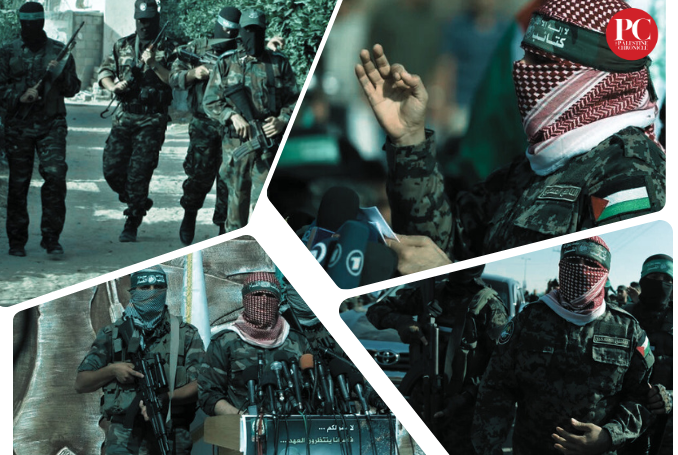
By Palestine Chronicle Editors
Abu Obeida is the military spokesman for Al-Qassam Brigades, the armed wing of the Islamic Resistance Movement, Hamas.
Over the years, and specifically since 2006, Abu Obeida became an iconic figure for Palestinians, and eventually throughout the Middle East and the Muslim world. Judging by social media posts and media coverage outside these regions, it seems that Abu Obeida’s image has evolved to represent something much bigger than Palestine and its immediate environs. In other words, Abu Obeida is now an international phenomenon.
Fake Abu Obeida
To take away from the power of the brand, Israel has made numerous claims about his identity, giving him a face and a name, and often claiming that they have bombed his house repeatedly – in 2008, 2012, 2014, and again, in the ongoing war on Gaza.
Israeli media sources, citing Israeli intelligence, said that Abu Obeida hails from the village of Ni’ilya, one of the numerous Palestinian villages that Israel has occupied and destroyed in 1948 when it was founded on the ruins of historic Palestine.
In July 2014, the Israeli newspaper Yediot Ahronot claimed that Abu Obeida had obtained a master’s degree from the Islamic University in Gaza, going as far as specifying the title of his dissertation, in fact, of his PhD topic as well.

Palestinian woman Amina Ghalia has today succumbed to wounds she sustained 16 years ago when an Israeli shell hit into the beach where they were picnicking in Gaza. A footage of her sister Huda screaming and collapsing next to the body of her killed father had shocked the world

Huda and Abu Obeida
In truth, we know nothing about Abu Obeida. Unlike Mohammed Deif, general commander of Al-Qassam Brigades, not even early photos of Abu Obeida are available.
Equally true, the man hardly seems interested in seeking fame or recognition beyond his current role of being a spokesman for one of the strongest – if not the strongest – Palestinian Resistance group in history.
Abu Obeida made his first appearance in 2006. Then, he spoke eloquently, decisively, and with an emotional tone that has defined all of his statements in the last 17 years.

The first statement issued by Abu Obeida was to claim responsibility, on behalf of Al-Qassam Brigades, of a military operation east of the town of Rafah, in southern Gaza.
That operation killed two Israeli soldiers, wounded two, and led to the capture of Gilad Shalit. The rest is history.
The operation was a direct response to an Israeli strike targeting the Palestinian Abu Ghalia family while picnicking on the beach in Beit Lahia, in northern Gaza.
Tragic footage from the massacre showed a young girl, Huda, the sole survivor of the Israeli attack, screaming her parents’ names as they all lay motionless on the beach.
The massacre took place on June 9, 2006, and Abu Obeida’s first message appeared on the 25th of the same month, as if a response to Huda’s anguish.
Since that day, Palestinians and eventually Arabs, and ultimately many people around the world, began affiliating Abu Obeida’s voice with the power and the steadfastness of the Palestinian Resistance.

Different Kind of Leader
Unlike the speeches of Arab leaders, when Abu Obeida delivers his carefully-worded and brief messages, millions of Arabs listen, and listen carefully.
Another thing that makes Abu Obeida’s messages effective is the fact that he rarely appears to lie or mislead.
Additionally, his target audience is universal: “Our steadfast people”, “Our Arab and Muslim nations,” and, equally important, “Free people of the world”.
By being able to break away from the confines of language and limits of target audiences, Abu Obeida has grown in his import to represent a new generation of Palestinian and Arab leaders, one that is often juxtaposed with those who are considered lackeys to Washington and its western allies.




